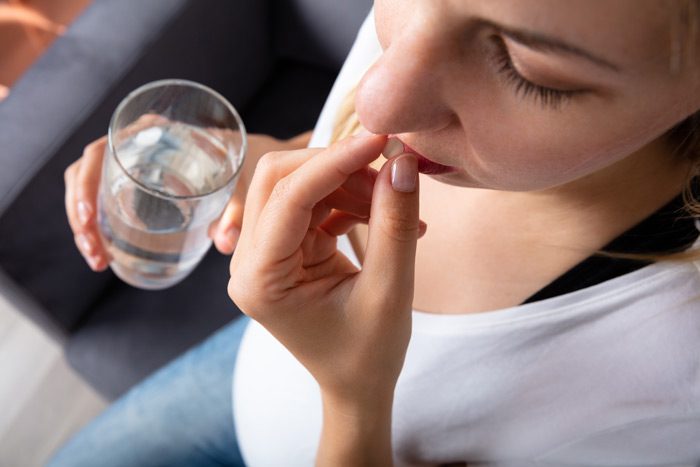By Sandy Baker
Codeine is an opioid medication used to treat mild to moderate acute or chronic pain. It’s often used alongside other medications to reduce coughing as well. This prescription drug does not cure an underlying condition, but it provides relief from symptoms. Unfortunately, codeine is also habit-forming. Those who are prescribed codeine should always use it as directed by their doctor to avoid complications with dependence and addiction.
How Does Codeine Work?
Codeine is a type of opiate analgesic in the antitussive classification. When used for pain, it alters the way the brain and the rest of the nervous system respond to pain. For coughing use, this medication works to reduce the activity in the area of the brain that controls the coughing process.
Codeine is often used along with other medications such as acetaminophen, aspirin, or carisoprodol in cough medications. It typically comes in tablet form, but it can also be sold as a liquid. Most prescriptions limit use to the shortest amount of time possible and no more than every 6 hours.
Is It Addictive?
It is possible to develop an addiction to codeine when it is overused or misused. This medication changes the way the body and brain respond to pain signals, but it also triggers the pleasure center of the brain. While this drug is less commonly connected with addiction than other drugs, it can be quite powerful when misused.
Young people may turn to codeine when looking for a “quick and easy” high. The drug is often found in cough medications, which may be in parents’ medicine cabinets. People may mix the medication with juice or soda, or even mix it with alcohol as a way of getting a buzz or a short-lived high from it. This codeine-drink mix is sometimes called purple drank, sizzurp, or lean.
It’s also possible to misuse the pill and tablet form of this drug. In this case, it may be crushed and snorted or simply taken in pill form.
When taken for non-medical needs, codeine creates a rush of relaxation and warmth through the body. By triggering a release of dopamine in the brain, the drug creates a sense of euphoria. As a result, a person may begin to engage in drug-seeking behavior to experience that high again. Because codeine use leads to tolerance, the person will need more and more of the drug to feel the same effect.
As drug use increases, dependence and addiction may form. Signs of dependence include intense cravings and physical pain and discomfort when the person stops using this drug.
As with any other opioid, it is possible to overdose from codeine. When this happens, the brain’s activity slows down, leading to a slowing of the heart and breathing rates. A person may enter into a coma or experience sudden death. In all cases, overdoses are life-threatening and require immediate medical attention.
Signs of Addiction to Codeine
A person of any age can develop an addiction. When this occurs, they may have symptoms such as:
- Running out of prescribed medications before they should
- Using more of the substance than prescribed
- Snorting the medication or mixing it with alcohol
- Agitation and mood swings, especially when not able to use the substance
- Physical changes. including poor hygiene, dry mouth, stomach pain and cramping, and weight loss
- Significant apathy
- Drowsiness and relaxation, including being unable to stay awake
Getting Treatment for Codeine Addiction
Without treatment for codeine addiction, side effects and physical health risks can develop. This includes the risk of overdose, but also kidney and liver failure, irregular heartbeats, and seizures. Some people may experience cognitive decline as well, especially over long periods of use.
Help is available. A wide range of resources can help a person overcome codeine addiction. The key is finding support right away to minimize the onset of complications. Treatment may involve the use of detox and residential care, especially for those who have used codeine for a long time. The Ranch at Dove Tree can help those with codeine or other addiction reclaim their lives. Reach out to us to learn more about treatment options.













